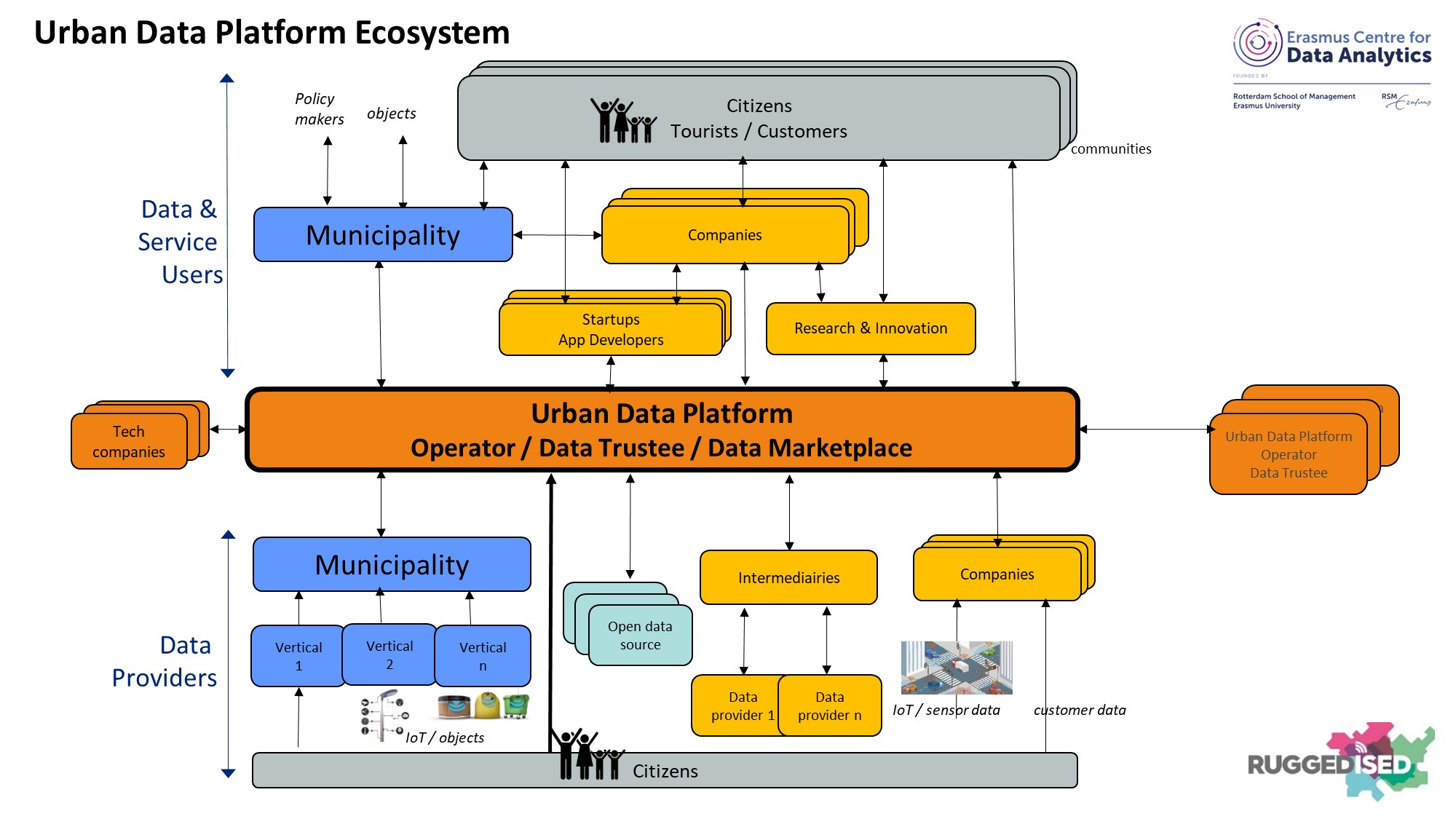
Towards Smarter Cities & Communities
10 key points to de-risk investments
Digitalisation is a way of life today and cities, both large and small, are driving the digital and economic transition. Digitalisation was also the theme of this year’s Connected Smart Cities Conference 2019, organised by the OASC (Open & Agile Smart Cities), together with SmartUp BSR (Baltic Sea Region) and with support from SynchroniCity. The main takeaway of the day: “We must work ever more closely together, share experiences, and involve citizens to de-risk investments in smart cities and communities”
Martin Brynskov, Chair of OASC and Coordinator of SynchroniCity, and Taina Tukiainen, Professor at Aalto Unversity and Smart-Up BSR, summarised that the main goal of EU policies must be to de-risk investment in smart cities and communities. Brynskov added: “A digital transition that is linked to sustainable economic development can only work if we de-risk investment in cities and communities.”
So how do we de-risk investment in cities? Dr. Marcel van Oosterhout, Assistant Executive Director at Erasmus Centre for Data Analytics, partner in SCC project RUGGEDISED, has come up with the following 10 points to do just that:
1. Standardisation is key to de-risking investments in urban data platforms. However, various communities are still working on their own sometimes overlapping, sometimes conflicting standards. A way to solve this is to use the simple and transparent mechanisms, created by the OASC – the Minimal Interoperability Mechanisms (MIMs) –, in three areas:
a. smart city applications and services;
b. urban data platform/marketplace; and
c. city resources (data sources, platforms, IoT devices).
2. Technology innovation, and more specifically urban data platforms (UDPs), is vital for achieving smart cities. UDPs are a horizontal infrastructure that facilitates different uses and are part of a broader ecosystem of data, devices and platforms that enable different communities to interact. This interaction could be facilitating citizens to co-design or co-decide on city challenges, or be customer centric and based on localised personalised services to empower citizens. These elements will be central in the forthcoming EU funded programmes. Making a proper ROI (business case) for investors in UDPs, therefore requires packaging together several uses that generate concrete financial value (i.e. tangible benefits) with those that generate social and/or environmental benefits.

3. Agile, modular systems. Incorporating a sufficient level of agility in the design and development of the UDP system is an important consideration. The more agile the system, the lower the probability of technology debt. The concept of interoperable packages or components (use of modularity) is a good approach to ensure the required level of agility while monitoring costs.
4. Proof of Concept. Short-cycle agile development and the use of Proof of Concept (PoCs) methods to demonstrate feasibility for a project are highly recommended and favoured above the most costly, long-term development cycles. Any initial investments should be in PoCs to research whether a project is even feasible before running it. Accept the right to fail and learn from it.
5. Social innovation. The main effort needs to go into the social innovation, which includes: developing sufficient levels of trust; creating a shared ambition; engaging with all stakeholders; and developing the right governance and business models.
6. Institutional innovation. The required level of institutional innovation needs to be addressed as many smart city projects are currently seriously hampered by restrictions from (outdated) rules and legislation.
7. Financial management. Various financial (risk) management approaches can be adopted to mitigate the investment risk, including compound risk rating; pro-active risk mitigation during procurement; and portfolio level risk analysis.
8. Knowledge sharing. The European innovation partnership on smart cities and communities (EIP-SCC) network of lighthouse and follower cities provides a wealth of knowledge and best practice. Sharing the experiences from the various pilot projects throughout Europe is essential to scale up the social learning process and reduce investment risks. The EIP-SCC network can also be used to identify any additional research and innovation needed; to coordinate or develop coalitions for future collaboration; assess the various programmes in operation, and provide advice that will help accelerate the market adoption of common data platforms.
9. An EU/Regional investment fund. EU funding for smart cities has so far been mainly project-based, which often means that pilot projects are not continued or scaled up when funding runs out. Longer term EU-initiated regional investment funds could be the answer. EU funds could be combined with local funds (e.g. from city municipalities, institutional investors, grid operators and construction companies) to scale up the roll-out of smart city projects while reducing the investment risks over a longer period, which is a pre-requisite for investors. This will become increasingly important as the EU continues to invest heavily in the digital Europe programme.
10. Citizens as “city sensors”. Communicating directly with citizens is essential to make the digitalisation and economic transition happen. Citizens are increasingly becoming the sensors in the city whether it is by measuring air quality with an App or reporting on the environment. Clearly, data protection plays an important role in ensuring that this is done appropriately. Concepts like the personal data vault might be helpful. However, it undoubtedly provides a feed on information for a city that gives far better services for all; and if individuals “opt-in” can offer personalised services for the individual – think public safety and security; transport; and health (wearables).

Read more:
Connected Smart Cities Conference 2019
OASC (Open & Agile Smart Cities)
SmartUp BSR (Baltic Sea Region)
EU SCC RUGGEDISED project
UDP Research by Rotterdam School of Management, Erasmus University
